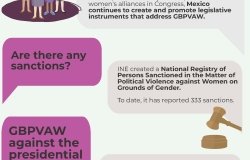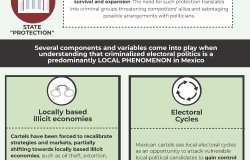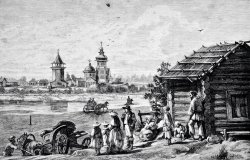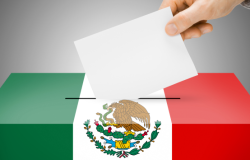Islam’s Powerful Role in the New Egypt
Islam is now playing a more powerful role in Egyptian public life more than a year after Islamist parties dominated parliamentary elections. But Egypt is not following Iran’s path toward theocracy, according to a new paper by Nathan Brown, a senior associate at the Carnegie Endowment for International Peace.
Islam is now playing a more powerful role in Egyptian public life more than a year after Islamist parties dominated parliamentary elections. But Egypt is not following Iran’s path toward theocracy, according to a new paper by Nathan Brown, a senior associate at the Carnegie Endowment for International Peace.
Islam’s exact role in Egypt’s political future is not clear. State religious institutions like al Azhar, the Sunni center of learning, have achieved more prominent roles. But clerics “are not gaining positions of political power, state institutions continue to function, and democratic practices still manage to limp along,” Brown argues. Islamists who want to use the state’s power to “build a more religious society may one day conclude that they should have been careful of what they wished for,” he warns. The following are excerpts from the paper by Brown, a professor at the George Washington University.
In the wake of Egypt’s revolution, a sea change is undeniably under way: Islam is playing a different and more powerful role in Egyptian public life. But focusing on the growing influence of Islamic forces masks an unpredictable evolution proceeding underneath the surface. The Muslim Brotherhood, Salafis, and a host of state institutions dedicated to Islam are themselves being reshaped in profound but unpredictable ways by their growing involvement in politics.
Islamic Forces
• The currently dominant Muslim Brotherhood has shown tactical agility in winning electoral victories. But it still needs a clear strategic vision that enables it to change from an opposition social movement dedicated to the reform of all society into a competitive political party.
• Salafis have also enjoyed electoral success despite having much less political experience than the Brotherhood. Yet they must still determine how to combine their unswerving dedication to religious truth with the compromises necessary in democratic politics. And they have to learn how to form disciplined political organizations out of a formerly diffuse leadership of preachers and scholars.
• State religious institutions like the country’s premier Sunni center of learning, al-Azhar, have achieved a more prominent role, sometimes enshrined in constitutional text and formal procedure. But the internal and external pressure that comes along with centrality in public life is likely to keep the battles for control of these institutions very much alive. In the end, al-Azhar in particular may find that every step toward increased centrality moves it further away from autonomy.
Underlying Trends
Islamic forces are being reshaped by their participation in politics. The Muslim Brotherhood, Salafis, and state institutions related to Islam are plunging into the new environment unaware of and unable to control the ways politics will change them.
Egypt is not following Iran’s path toward theocracy, but when religion enters the realm of politics it will not remain unchanged. Clerics are not gaining positions of political power, state institutions continue to function, and democratic practices still manage to limp along, though they are increasingly threatened by distrust and polarization.
Religion will undoubtedly play a major part in the new Egypt—though the exact role is unclear. Islamic forces that want to use the power of the state to build a more religious society may one day conclude that they should have wished more carefully…
The Muslim Brotherhood
The past two years have been very heady ones for the Muslim Brotherhood, an organization suppressed, hounded, and demonized for over half a century.It now controls the presidency and seems poised to knock down barriers to its members’ entry into a host of state institutions, ranging from the media to perhaps the military. The movement was able to steer the constitutional process and has not yet met its match at the voting booth.
The electoral success has made the Brotherhood’s leaders a group of content, sometimes even smug, democrats. For many years, they labored under the hopeful assumption that their values represented those of the silenced majority. They now feel that this assumption is established as fact for all those who care to look…
Salafis
Salafis are comparatively inexperienced in the political realm, but they have realized quick electoral success (see the appendix for an overview of Egypt’s Salafi groups and parties). Despite the novelty of their prominent political role, politics presents them with many of the same challenges as their more seasoned Islamist rivals in the Muslim Brotherhood—enough so that some have begun to speak of the “Brotherhoodization” of the Salafis.
But unlike the Brotherhood, Salafis have had little time to prepare themselves or develop tactics to manage the ideological and organizational pressures. While they have therefore met the challenges with less coherence, this has not yet detracted from their political success.
Click here for the full text.
Click here to read Nathan Brown’s chapter on Palestinian politics.
Related Program

The Islamists
Learn more about Hamas and how it relates to similarly aligned organizations throughout the region. Read more









